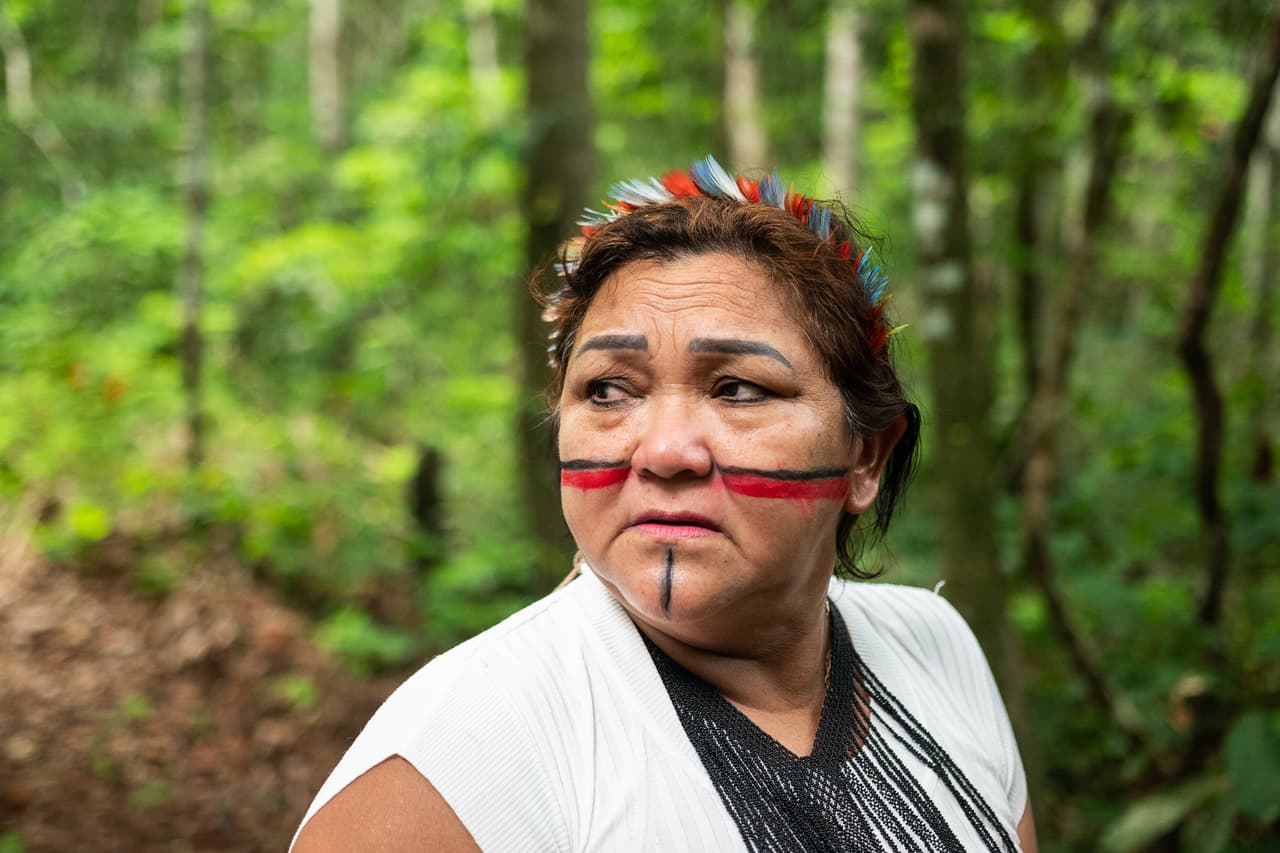
Why investigative journalism should spark change in the world
Democracy relies on truth and transparency. In 2024, a year where half the world’s population will have the chance to vote in elections, there has never been a more crucial time to shine a light on social injustice, political corruption and global threats including the climate crisis and antimicrobial resistance, which kills more people each year than HIV and malaria.
That’s where investigative journalism comes in. The power of forensic, painstaking reporting is well known. It is 50 years since Washington Post reporters Bob Woodward and Carl Bernstein brought down a US president by exposing the Watergate scandal. In the decades since, there have been thousands of investigations that have had real-world impact.
At the Bureau of Investigative Journalism (TBIJ), we’re proud to be part of this fragile ecosystem of tenacious investigative reporters and editors who lift up the rocks of injustice to see what’s underneath. It is difficult work – expensive, specialised, time consuming, stressful and legally fraught. But we love it.
We believe that it is vital that today’s stories are more than momentary headlines. Our mission is to produce investigations that challenge the status quo and create lasting change. We’re an impact-focused organisation. We think carefully about the role journalism could and should play in society, and how our work can contribute to positive, sustainable social change, including by working directly with communities.
We want to put the information and knowledge we uncover into the hands of people who can use it to improve their lives, those of others, or the world around them.
 Oliver Kemp for TBIJ
Oliver Kemp for TBIJ
Publication day is just the beginning. At The Bureau, our commissioning process involves proactively identifying what impact could be achieved. Our hope is that once an investigation is out, it will cause vibrations across the world. This is what happened with our exposé into a hackers for hire industry in India. Following our reporting, the UN wrote to Qatar, Germany and Google. The French police opened an investigation into the hacking of one of the targets, Michel Platini.
Impact can be big and can come fast. In June last year we spent months uncovering allegations of violence and deaths on Del Monte’s huge pineapple farm in Kenya. After publication, Kenya’s independent watchdog, the Kenya National Commission on Human Rights, launched an investigation into allegations of killings and assaults by Del Monte’s security guards. Several UK supermarkets stopped stocking pineapple products from the plantation, and Del Monte commissioned a human rights impact assessment of the farm. This year, the company fired virtually all of its in-house guards and outsourced security operations to the global security company G4S.
In the UK, we spoke to dozens of migrant workers about their experiences of living and working on farms. On the back of our investigation, three of the seasonal workers we interviewed were later invited to give evidence of the poor working conditions and exploitation they experienced to a committee in the UK parliament.
Sybil Msezane came to the UK as a fruit picker on a seasonal workers’ visa and endured shocking conditions when she arrived. A key interviewee in TBIJ’s exposé, Sybil was invited alongside our reporter to speak to the House of Lords.
 Sybil Msezane and Emiliano Mellino gave evidence in Parliament
Emiliano Mellino
Sybil Msezane and Emiliano Mellino gave evidence in Parliament
Emiliano Mellino
“Being asked to speak to the House of Lords felt like an honour,” Sybil said. “An honour to give a voice to the thousands who leave their families, flying halfway across the world in hopes of exchanging their labour for much-needed money to support loved ones”.
But, often, impact is an incremental process, requiring on-going reporting on and coverage of an issue, often by multiple outlets working in collaboration. In some cases, it can take years for investigations to translate into real-world change.
In 2015, we published an investigation into the CIA’s secret “black sites”, locations around the world where at least 119 people were taken and imprisoned. These disappearances were one of the most closely guarded secrets of the Iraq war. We looked into the case of Mustafa al-Hawsawi – who was detained in Lithuania in 2005 on suspicion of being part of al-Qaeda and subjected to horrific torture.
Earlier this year – nearly a decade on from this reporting – the European Court of Human Rights unanimously ruled that Lithuania allowed ‘inhuman’ treatment of Mustafa al-Hawsawi by the CIA. The judgement cited our investigation.
Philanthropic foundations – understandably – often gravitate towards initiatives with concrete, pre-ordained outcomes, such as health interventions or educational programmes. While these are vital, so too is independent journalism in the public interest.
This funding gap for public interest journalism represents a missed opportunity for philanthropy to drive transformative impact. A single well-researched exposé can lead to policy changes, legal reform and increased public awareness, which in turn can help move the dial on myriad issues from corruption to environment; justice and human rights.
The long-term societal benefits of a better-informed public cannot be underestimated. And journalism deserves the same level of resourcing as other programmes and interventions that improve people’s health, rights and prospects. Investigative journalism needs to be understood as a tool for democracy building and an effective means of holding those with power to account.
Without dedicated, on-the-ground journalism, rigorous fact checking and robust legal review, such wrongdoing and injustice would remain unreported. And without journalism that holds power to account independently and courageously, corporations, governments and individuals would continue to operate with impunity.




